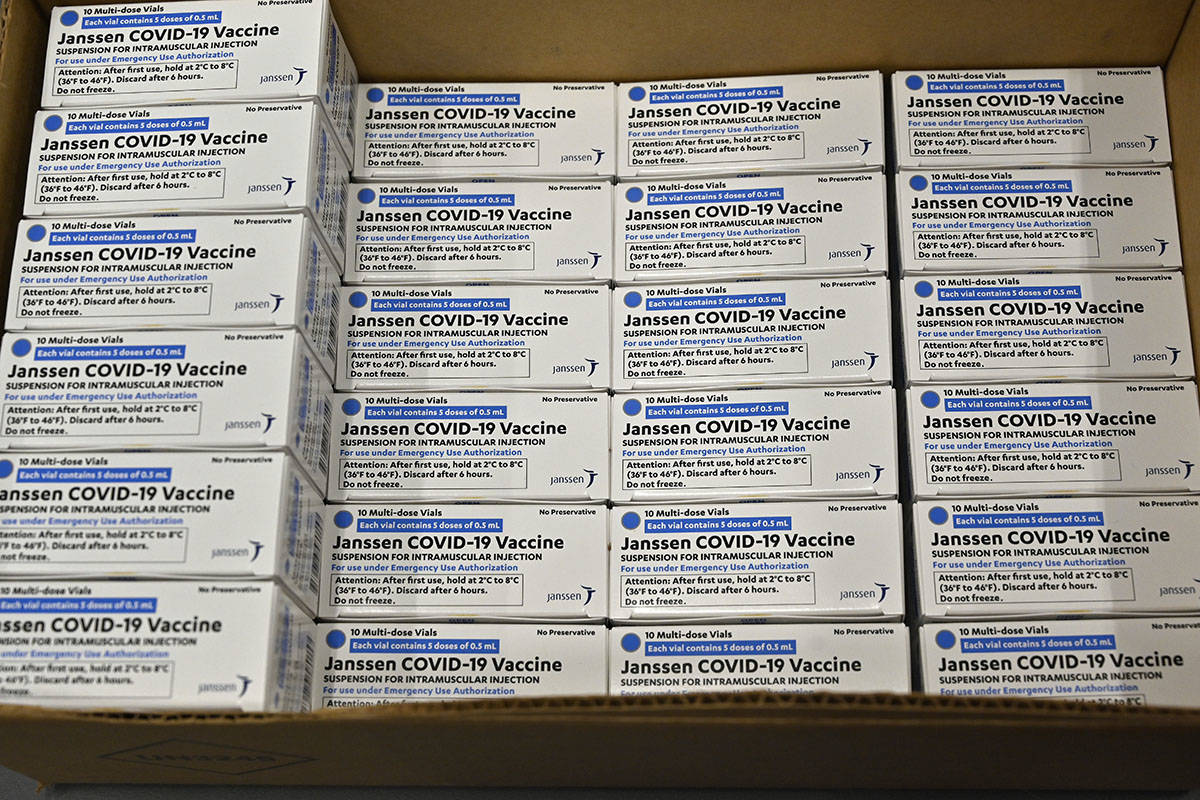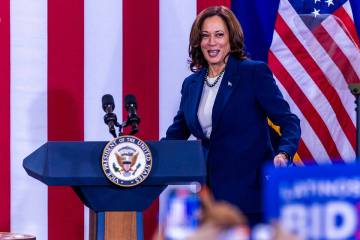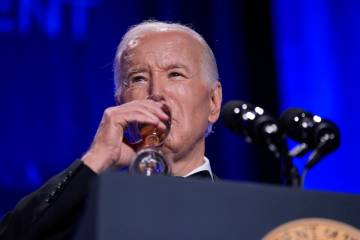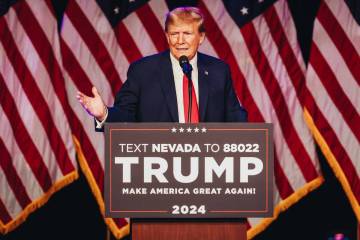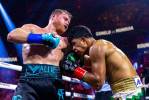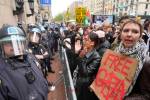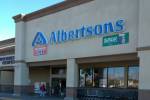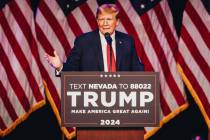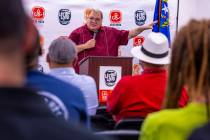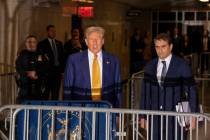Nevada to receive 24K doses of Johnson & Johnson vaccine this week
Nevada expects to receive 24,000 doses this week of Johnson &Johnson’s COVID-19 vaccine, which was authorized for emergency use by the Food and Drug Administration on Saturday.
The Johnson &Johnson product is the third vaccine approved for use in the U.S., following the authorizations in December of vaccines by Pfizer/BioNTech and Moderna.
“The Johnson &Johnson vaccine has been shown to prevent severe COVID-19 illness, hospitalization and death, and is another tool to help combat COVID-19,” said Nevada vaccine official Candice McDaniel during a media briefing on Monday.
The 24,000 doses will be in addition to 33,930 first doses of Pfizer vaccine allocated to Nevada this week and 28,500 doses of Moderna vaccine, increasing the state’s overall allotment by 41 percent.
COVID-19 vaccine remains in short supply across the globe. In Clark County, vaccine has been made available to people 65 and older and to a growing number of occupational groups defined as the frontline/essential work force. About 14 percent of Nevada’s population has received at least one dose of vaccine.
McDaniel, health bureau chief for the state Bureau of Child, Family and Community Wellness, stressed that “medical experts are encouraging people to get whatever vaccine is available to them.”
Vaccine effectiveness
McDaniel’s guidance has been stressed in recent days by public health authorities including Dr. Anthony Fauci, a top medical adviser to both President Joe Biden and former President Donald Trump. That’s because the Johnson &Johnson vaccine appears to be somewhat less effective overall than the Pfizer and Moderna vaccines.
Data from clinical trials indicates that the Johnson &Johnson vaccine is 66.1 percent effective in preventing COVID-19, compared with 95 percent for the Pfizer/BioNTech vaccine and 94.1 percent effectiveness for Moderna, according to the FDA. However, data indicates that it, like the other vaccines, is highly effective against serious disease.
However, the vaccine’s efficacy rate was 42 percent in preventing moderate to severe illness in adults over 60 with medical conditions such as hypertension or diabetes, though regulators last week said the statistical significance of the finding was uncertain, The Washington Post reported.
The Johnson &Johnson vaccine has certain advantages. It doesn’t need to be stored frozen and requires only one shot, not the double dose required by both Pfizer and Moderna vaccines. This means that it can be used in a wider variety of settings and more remote areas.
Unlike the Pfizer and Moderna vaccines, it underwent clinical trials when variants of the coronavirus were on the rise. A portion of its trials were conducted in South Africa, where a concerning variant was first detected.
There are other differences. Both the Pfizer and the Modern vaccines are a new type of vaccine called messenger RNA (mRNA). These vaccines give instructions to cells to make a harmless piece of what is called the “spike protein” of the coronavirus, in turn generating the body’s immune response. The Johnson &Johnson product is a viral vector vaccine, which uses a modified version of a different virus to deliver instructions to cells to create the spike protein, likewise creating a response by the immune system.
“I wouldn’t look at this as better or worse,” Brian Labus, an epidemiologist at UNLV’s School of Public Health, said about the Johnson &Johnson vaccine. “I would look at it as different.”
“The goal is to keep people from dying from this virus, and this vaccine, it does that,” said Labus, a member of the governor’s COVID-19 medical advisory team.
There may be a danger in not taking the first vaccine available. “If you do hold out for one of the other vaccines, you hold out in an unvaccinated state,” he said.
Dr. David Weismiller, a professor in the UNLV School of Medicine Department of Family and Community Medicine, said he would recommend to his patients that they get any vaccine that they can.
With three vaccines, so-called herd immunity could be achieved by July, he said, based on current disease models. Herd immunity is achieved when a large enough percentage of a population is protected against disease to prevent its spread within a community. For the coronavirus, authorities believe herd or community immunity will be reached when 70 percent to 90 percent of a population is protected against the virus, through natural immunity from previous exposure or vaccination.
“This could really turn the corner for us in July,” Weismiller said.
Contact Mary Hynes at mhynes@reviewjournal.com. Follow @MaryHynes1 on Twitter.



